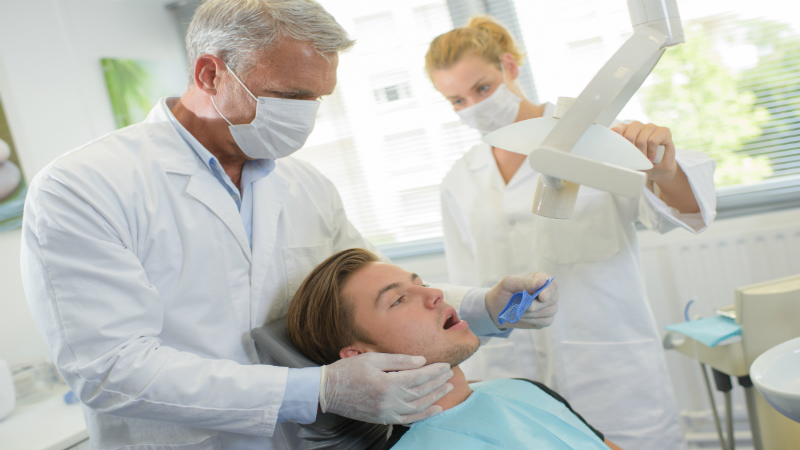To help you with a quick recovery from oral surgery; knowing what to expect in advance and knowing how to recuperate are important. In the majority of cases oral surgery is done on an outpatient basis and is done under general anesthesia. During your preliminary appointment your oral surgeon in Summit NJ will give you instructions on how you should prepare for both the surgery and your recuperation.
The night before surgery:
As the work will be done under general anesthesia you will be in no condition to drive yourself home from the oral surgeon’s office. Make arrangements beforehand for a ride to and from the surgery.
Your oral surgeon will tell you how long you must fast before the procedure; normally this is from eight to twelve hours. Prescription medications can be taken normally and if you are a diabetic you should eat breakfast.
Recovery:
As you will be in no state to prepare for post surgery care right after the procedure, it is important that all preparations are made in advance. Depending on the surgery you may have to spend a considerable amount of time in bed so ensure that you have extra pillows that you can use to rest comfortably. Prepare any entertainment options such as books, magazines and a TV that will keep you occupied. This is a great time to quit smoking as it must be avoided while you are recovering from oral surgery.
For the first day or two you may experience swelling. You can tackle this with an ice pack, keep the pack on the site for about 15 minutes, remove it for 15 minutes and then put it back on. After a full day rinse your mouth every six hours with salt water as well as after every meal.
What to eat:
Your oral surgeon in Summit NJ will tell you to stick with soft foods for the first couple of days. Avoid any hard food for about six or eight weeks otherwise there is a chance the site will open. It is best to avoid any hot food or beverages until you are completely free from the effects of the anesthetic, stay away from any alcohol and don’t drink through a straw for a full day.
After about 48 hours the swelling will subside, it is during this period that resting as much as possible is important and do not do any strenuous exercise or work. The length of time to completely recover depends a great deal on the type of surgery, common procedures such as the removal of a wisdom tooth usually takes a week or two to completely heal; more extensive surgery can take upwards of a month.






